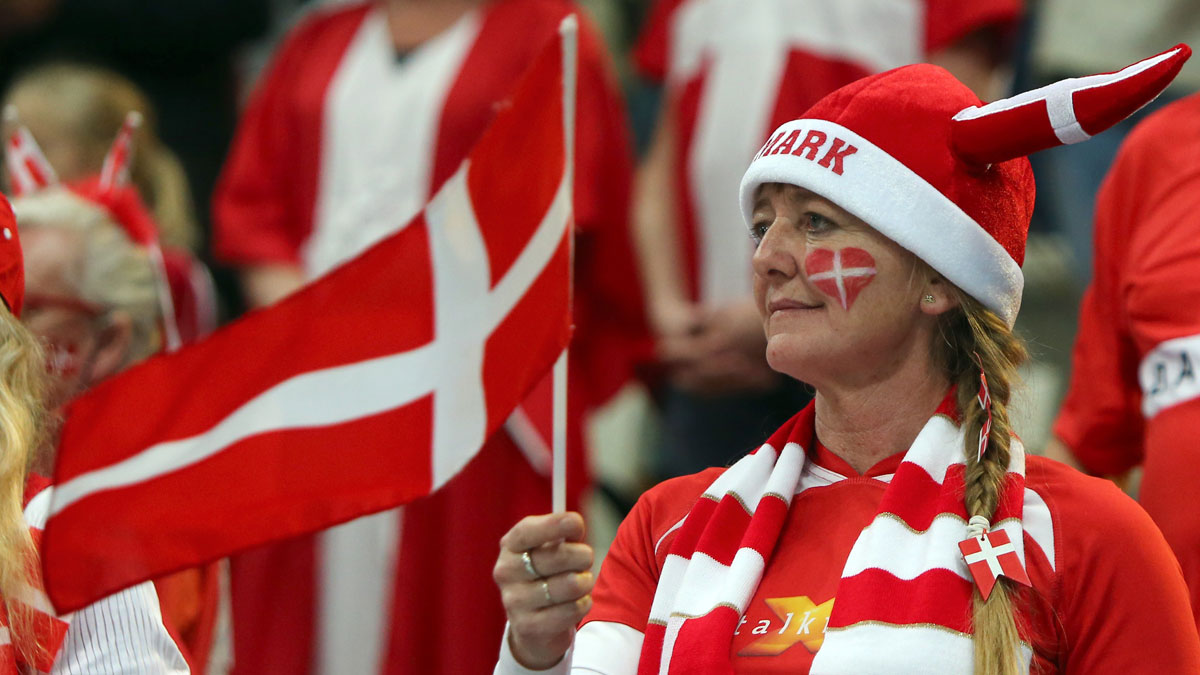Why British women are opting for Danish sperm
New government data shows Scandinavian semen is top choice among women looking to get pregnant

A free daily email with the biggest news stories of the day – and the best features from TheWeek.com
You are now subscribed
Your newsletter sign-up was successful
British women buying sperm for artificial insemination prefer donors from Denmark, new government data reveals.
A paper from the Department of Health and Social Care shows that Danish semen now makes up almost half of all non-British male reproductive material imported into the UK.
Last year, around 3,000 samples were sent to the UK from the Scandinavian nation, “with women paying around £460 per laboratory issue ‘straw’ ,though the costs of a donor-assisted baby soar if IVF is involved”, reports the Daily Mail.
The Week
Escape your echo chamber. Get the facts behind the news, plus analysis from multiple perspectives.

Sign up for The Week's Free Newsletters
From our morning news briefing to a weekly Good News Newsletter, get the best of The Week delivered directly to your inbox.
From our morning news briefing to a weekly Good News Newsletter, get the best of The Week delivered directly to your inbox.
“Ten years ago, heterosexual couples were our main clients,” says Peter Reeslev, CEO of sperm bank Cryos, which sends Danish sperm all over the world. “Then it shifted a little, and we were seeing more gay couples. Now it is the single mothers, women who are going it alone.”
Why are women not choosing British men?
The “viking baby invasion”, as it has become known, “didn’t start until 2005 changes in law banned sperm donors from being anonymous in Britain, which led to a rapid decline in British sperm donors”, says Metro.
In 2015, the BBC reported that just nine men had registered as sperm donors, a year after the opening of Britain’s national sperm bank. The bank, based in Birmingham, closed in 2016.
A free daily email with the biggest news stories of the day – and the best features from TheWeek.com
More recently there has been a slight uptick in the British take-up of donations, but “despite the statistics showing growing numbers of national donors, British men are still culturally more resistant to sperm banks than the Danish are”, says Wired.
But why Danish?
Professor Allan Pacey, head of andrology for Sheffield Teaching Hospitals, told Wired that the historical link between the UK and Denmark is a plus mark for many patients.
“There are other sperm banks around the world that the British could use, but there is a viking connection with Denmark that people warm to,” he says.
The large number of Danish applicants for sperm donation is another factor. As Amanda Tinker, a British woman who used a Danish sperm donor to have her baby, told the Mail: “Scandinavians have a healthier attitude to sex and procreation. They see it as honourable.”
Scandinavians are also much lauded for their looks, which may be a draw. “They are a good-looking bunch,” says Tinker. But “they are not all Alexander Skarsgard”, she adds, referencing the popular Swedish actor.
Ultimately, says Pacey, the sheer range of Danish men signing up to donate is key, offering buyers an an unparalleled variety of profiles from which to choose.
“Until recently, couples looking for sperm donors were mostly heterosexual, and their priority was to find someone who matched the putative father’s main characteristics – blood type or height, for example,” he explains.
“This all changed as single women and same-sex couples, for whom this is not relevant, increasingly started conceiving through sperm banks. The choice of donor is now more based on the desirable characteristics that the patients might want to see in their child.”
.
-
 The 8 best TV shows of the 1960s
The 8 best TV shows of the 1960sThe standout shows of this decade take viewers from outer space to the Wild West
-
 Microdramas are booming
Microdramas are boomingUnder the radar Scroll to watch a whole movie
-
 The Olympic timekeepers keeping the Games on track
The Olympic timekeepers keeping the Games on trackUnder the Radar Swiss watchmaking giant Omega has been at the finish line of every Olympic Games for nearly 100 years
-
 Epstein files topple law CEO, roil UK government
Epstein files topple law CEO, roil UK governmentSpeed Read Peter Mandelson, Britain’s former ambassador to the US, is caught up in the scandal
-
 Iran and US prepare to meet after skirmishes
Iran and US prepare to meet after skirmishesSpeed Read The incident comes amid heightened tensions in the Middle East
-
 Israel retrieves final hostage’s body from Gaza
Israel retrieves final hostage’s body from GazaSpeed Read The 24-year-old police officer was killed during the initial Hamas attack
-
 China’s Xi targets top general in growing purge
China’s Xi targets top general in growing purgeSpeed Read Zhang Youxia is being investigated over ‘grave violations’ of the law
-
 Panama and Canada are negotiating over a crucial copper mine
Panama and Canada are negotiating over a crucial copper mineIn the Spotlight Panama is set to make a final decision on the mine this summer
-
 Why Greenland’s natural resources are nearly impossible to mine
Why Greenland’s natural resources are nearly impossible to mineThe Explainer The country’s natural landscape makes the task extremely difficult
-
 Iran cuts internet as protests escalate
Iran cuts internet as protests escalateSpeed Reada Government buildings across the country have been set on fire
-
 US nabs ‘shadow’ tanker claimed by Russia
US nabs ‘shadow’ tanker claimed by RussiaSpeed Read The ship was one of two vessels seized by the US military